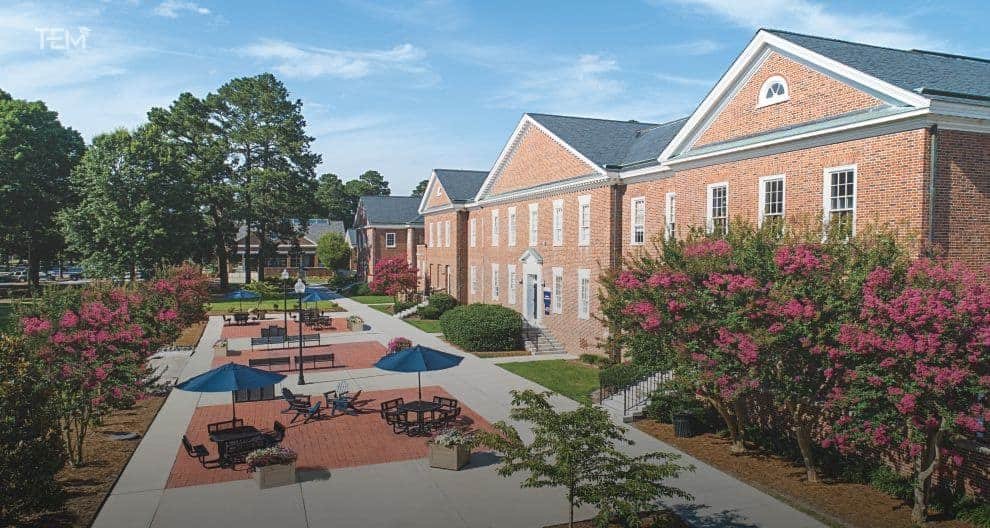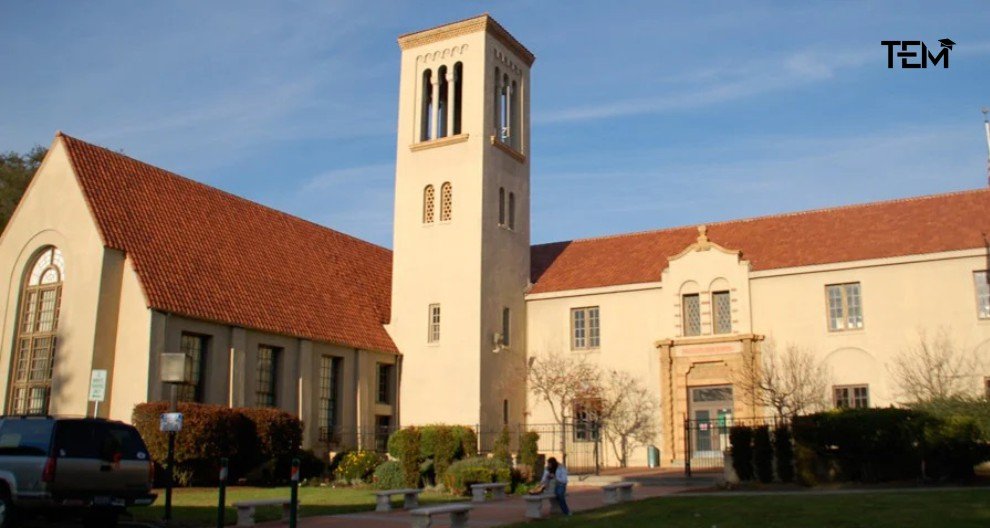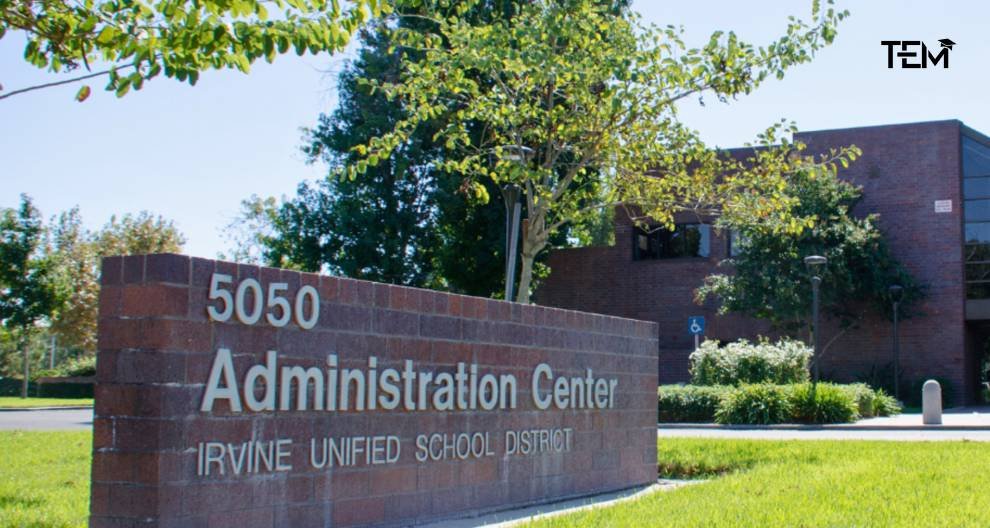The concept of leadership projects a broad spectrum in the educational domain. Exercising ‘good’ leadership at educational institutions not only helps encourage overall academic development of students, but also fosters creativity amongst the general faculty, students and staff.
For educators and future education leaders, it is crucial to understand the benchmarks for good leadership at educational institutions, and how it can be leveraged to implement meaningful changes. A persona of good leadership is portrayed by Dr. Evan D. Duff (President of North Wesleyan College), who has been fostering creativity and academic excellence at the college and contributing to its perpetual growth for over a decade.
A Virtuous Educational Leader
Dr. Duff embarked upon his educational leadership journey in 2003. After working for prolonged years in the business and industry domain, he shifted towards higher education and started working at a public community college and later with two private, faith-based institutions. Working at educational institutions helped Dr. Duff gain a unique perspective on the higher education needs of traditional and working adult students. He further earned academic degrees at the masters and doctoral level.
During his tenure at North Carolina Wesleyan College (NCWC), he fulfilled several high-executive roles such as Interim President, Senior Vice President of Academic Affairs, Provost and Vice President of Adult Studies. Throughout these roles, he was responsible for various critical aspects such as leading the efforts to approve new majors, co-writing the College’s first graduate application to the Southern Association of Colleges and Schools- Commission on Colleges (SACS-COC), and creating seven new offsite instructional locations.
He was also responsible for facilitating the development of partnerships with 20 two-year and four-year colleges, which led to partnership agreements between those colleges and NCWC. In 2020, Dr. Duff became the 8th President of NCWC. Throughout his career, Dr. Duff has authored or co-authored various academic publications and presentations, and has been honored with numerous awards for his service to the College and the community.
An Avenue of Academic-Excellence
North Carolina Wesleyan College was officially chartered by the State of North Carolina in 1956. As a private four-year institution affiliated with the United Methodist Church, NCWC prepares students for professional advancement, life-long learning, and responsible participation in their communities. Dr. Duff asserts that NCWC has achieved the original motives of its founders via its strategic academic curriculums and educational approaches.
NCWC offers an array of academic opportunities with a rigid curriculum structured to cater the educational needs of students. Its ‘Academic Support Services’ assists students in achieving overall academic success through various programs. These include Supplemental Instruction (S.I.), Peer & Professional Tutoring, and Online Tutoring. The S.I. aids students in selected courses by providing a trained peer leader to assist with the subject matter. Its leaders are sophomores, juniors, and seniors who have displayed competency in a particular subject.
NCWC’s first-year experience offers coursework and enhanced advising for all incoming freshman and transfer students. The ‘Student Success Center’ offers both individual and group assistance by trained Peer and/or Professional Tutors. Moreover, the College also offers tutoring as a free service to all students.
Building Connections via Extra-curricular Activities
Along with their innovative teaching approaches, NCWC also emphasizes promoting extra-curricular activities amongst the students. Its view on successful persistence rates equates to meaningful connections, both inside and outside the classrooms.
- Extracurricular activities serve as an instance of students’ ability to build connections with other students, faculty, and staff outside of the classroom.
- NCWC offers more than 30 student clubs, 15 varsity sports and multiple intramurals.
- Moreover, students can relax with friends at its Internet Cafe, Hartness Student Center, and Cyber Lounge or in one of many hammocks on the college campus.
- One of the largest student clubs and soon-to-be competitive teams of the College is the esports—Bishop Gaming Association.
Inculcating Latest Trends
Along with the faculty and instructional technologist, Dr. Duff and his leadership team are constantly comprehending the latest articles and best practices related to trends in higher education. Through this, they derive data required to make informed decisions on pedagogical techniques, technology, and the most effective use of that technology in the classroom. Through this, several initiatives related to gamification, virtual reality software and artificial intelligence programs are piloted, along with other creative techniques to enhance the learning outcomes of the students.
‘Unity in Diversity’
In the threshold of promoting diversity amidst the college campus, NCWC has incorporated various programs under the leadership of Dr. Duff. During the summer of 2020, he established a Presidential Advisory Council to support the inclusion initiatives implemented by the College during the fall. Comprised of diverse faculty, staff, and students, the council included guest speakers, a campus unity walk, and events—centered on bringing people together—and new coursework was developed on topics such as diversity, equity, and inclusion.
NCWC is home to students hailing from over 35 different countries—asserting the importance of diversity and cultural awareness to the College. It organized a ‘Go Group’—a team of community volunteers helping develop a ‘home away from home’ atmosphere for the international students—which provides food, rides, gifts, and sometimes lodging during the holidays. Additionally, the team and director of International Student Services provide many services to the students and manage their non-immigrant status in and out of the classroom. This service is provided throughout the student’s college career and continues for three years after graduation.
Constructive Career Opportunities
NCWC’s career and leadership development office, which also houses internships, complements the academic programs of the College. Through the office, NCWC assists the students with professional development, while serving as a resource to the students, faculty, and the business community.
It also provides free access for all students and alumni to a resume-building program through the College Central Network (CCN) system, which endorses the availability of jobs. The College offers a yearly workshop series designed to assist students in preparing for internships and employment searches. Additionally, it offers career assessment services which provide tools to evaluate students’ personalities, interests, skills, and values, and then match the results to careers that are potentially suitable for them.
Embracing Transformations with Optimism
Over time, higher education has seen a monumental transformation with regards to technology, modes of delivery, and many more. The pandemic mandated fostering unique perspectives on education and accomplishing educational objectives in virtual settings. Although this has been the common practice for many institutions, incorporating virtual teaching in programs with advanced courses requiring face-to-face, hands-on approaches were difficult.
Dr. Duff mentions that in 2020 and 2021, higher education went through a year of transformation bringing forth learning outcomes that were much different than before the pandemic. He believes, “Faculty and students learned new ways to connect and digest course material. We also learned how to be more empathetic and creative to the challenges that are faced by many students from lower socio-economic areas.” NCWC’s faculty, staff, and administrators plan to execute their lessons experienced during the pandemic to provide effective and innovative services and meet the ever-evolving needs of the students. He adds, “I am optimistic about the future of higher education and how we can rise to the challenges that the last two years presented us.”

ALSO READ: The 10 Remarkable Education Leaders of November 2023


